What Does America Want?
"Bradley Freeman was a 19-year-old freshman at Mississippi State University in Starkville when he enlisted in the U.S. Army and became a paratrooper. He knew that America was worth fighting for. Freeman, who passed a day before July 4th, would be the last of the "Band of Brothers." "
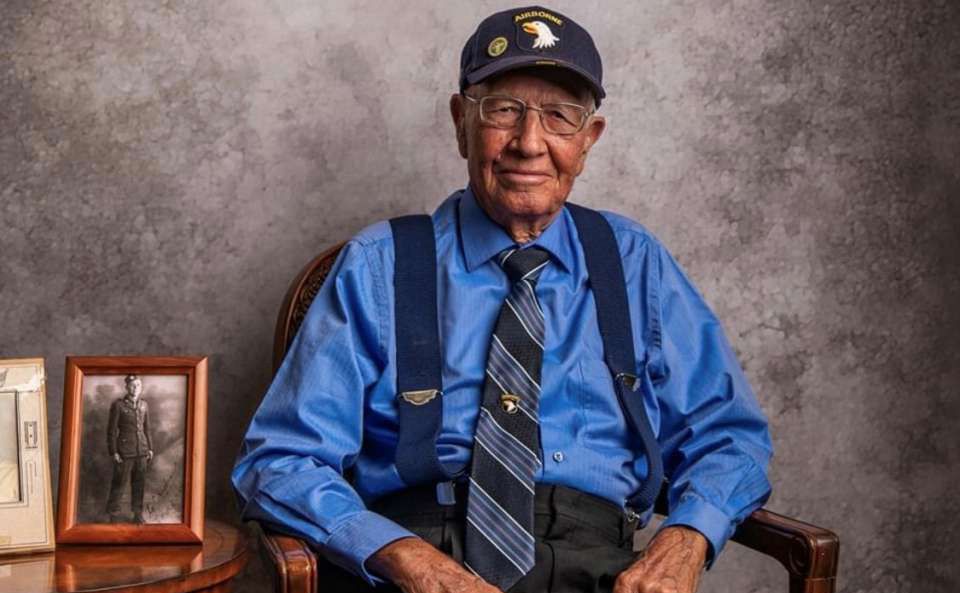
“All war is a symptom of man’s failure as a thinking animal.” - John Steinbeck
If you wanted to save the world from tyranny, you’d probably not seek out Mississippi country boy Bradford Freeman. His profile had to seem unlikely to be placed amid historic geopolitical storms that threatened humanity. There he was, though, in the midnight sky approaching the northern coast of France, June 6, 1944, loaded down with an 18-pound mortar plate, ready to parachute into the dark fields of Normandy and attack German defenses in the advance of the D-Day invasion.
Freeman was a 19-year-old freshman at Mississippi State University in Starkville when he enlisted in the U.S. Army and became a paratrooper. Quiet and determined, Freeman probably had the lowest profile of the men he served with after joining Easy Company, an outfit that was to become legendary as it fought its way across Europe and into the heart of the Third Reich. After taking part in softening up German resistance at Normandy, Freeman later dropped into Nazi occupied Netherlands for Operation Market Garden and was injured during the brutal winter fighting at Bastogne.
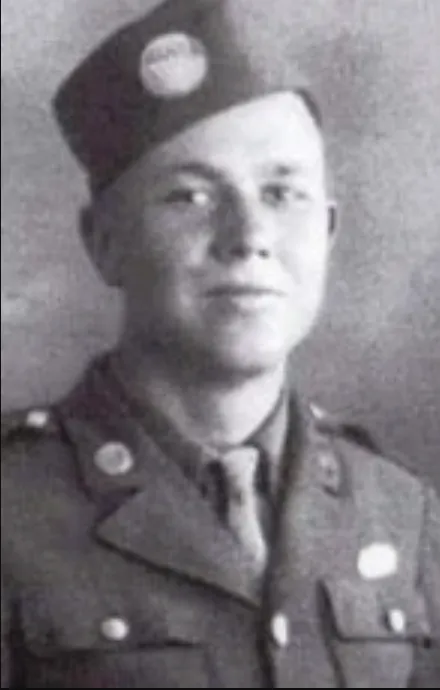
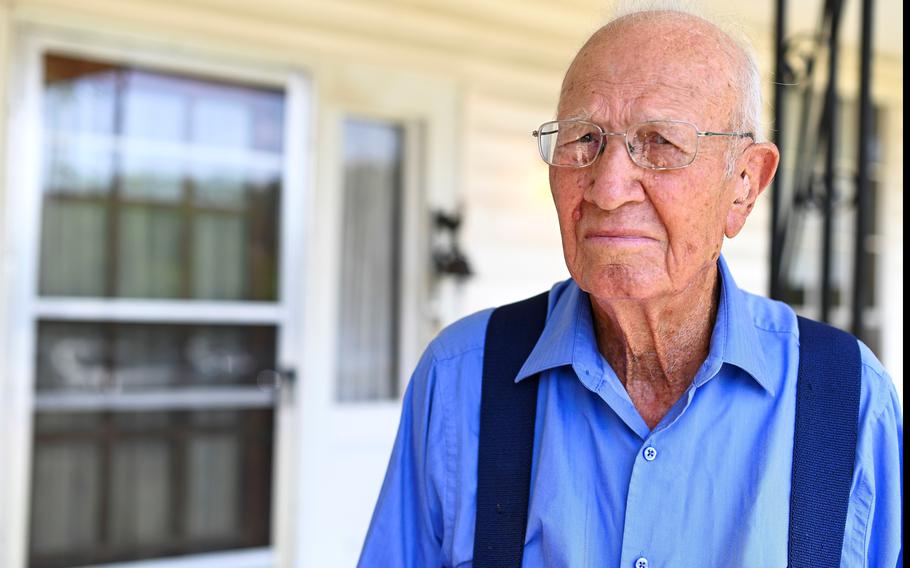
Freeman went home and settled in Caledonia, Mississippi, married the girl he had chased around the neighbor’s yard when they were five years old, and became a mail carrier for 32 years before retirement. He had no interest in being lionized, but Easy Company’s story became the subject of Stephen Ambrose’s 1992 bestseller, “Band of Brothers,” and then an acclaimed HBO mini-series. Freeman had to be convinced by his former commanding officer, Major Dick Winters, to participate in both projects to guarantee accuracy and realism. Bradford Freeman’s death on July 3rd at age 97 meant there were no longer any surviving members of Easy Company’s “Band of Brothers.”
Americans are fond of thanking their soldiers for protecting their freedoms, but most of the wars in which our nation has engaged have been about economics, keeping the world safe for capitalism and protecting access to natural resources. Whether it was Vietnam or Iraq, the patriotism of our young was used to defend something other than Constitutional rights. The War in Vietnam was a horror show prompted by a vague notion of “The Domino Theory,” an absurd belief that if Ho Chi Minh were to control Vietnam, communism would spread across the planet.
“We’ve got to fight them there, so we don’t have to fight them here,” was the nonsensical political refrain used to justify the U.S. involvement.
Iraq was even more absurd. The country’s brutal dictator was accused of possessing weapons of mass destruction (WMD), a claim that was based upon cooked evidence that had been previously discarded as unreliable. In Great Britain, Prime Minister Tony Blair’s Downing Street Memo proved deception was required to begin the invasion. The leaked document claimed the “war in Iraq was inevitable” and that the “intelligence and facts were being fixed around the policy” of an invasion.
The Bush administration was clearly intent on removing Saddam Hussein from power and conducting a nation building exercise in the Mideast, which had the added benefit of securing possibly the largest oil reserve on the planet. The Bush adventure expanded to Afghanistan, and 17 years later when the U.S. finally extricated itself, 7000 Americans had died in combat operations in the two countries. Even more disturbing is that fact that there have been 30,177 suicides of veterans of those two conflicts. Vietnam, too, continues to run up casualties with soldiers dying decades later of cancer caused by exposure to the defoliant Agent Orange, sprayed over their heads as they marched into the jungle.
All that death, we are forced to admit, did not have much to do with our freedoms back home. There were terrorists in Afghanistan, but we took the fight to them much too late because Bush and his defense secretary, Donald Rumsfeld, were more interested in Iraq. Osama bin Laden, who had attacked us, and his al Qaeda confederates, had melted back into the mountains and Pakistan by the time our military presence was felt in Afghanistan. Both conflicts were wildly mismanaged, absurdly expensive, ($300 million a day in Afghanistan) and took advantage of a generation of patriotic American youth who were lied to by their Commander-in-Chief. The war in Afghanistan became a quagmire to rival Vietnam.
The passing of Easy Company’s Bradford Freeman set me to thinking of America’s post World War II adventures. Our nation was still well-served by members of the military in this century, but their commitment to the country had been betrayed by liars in leadership. A sacred trust had been broken by deceptive presidents and other elected officeholders and no effort has been made to reestablish a bond between the citizen and their government. We are lied to daily about taxes and the environment and education and the economy, and we are being expeditiously stripped of our fundamental rights, which means that in due course there will not be much left for us to defend.
Freeman’s death also prompted me to think of my father. Like the Easy Company legend, my dad was from just outside of Starkville, Mississippi, and was pulled up out of the backwoods and sent to the European Theater of the war. James C. Moore had been a Private First Class and sharpshooter in the Anti-Tank company of the 3rd Infantry, which was part of the Sixth Army Group with orders to drive the Nazis out of the Alsace Lorraine region of Northeastern France during the last two years of the war. The U.S. had liberated the Nazi held positions to the north and south as well as Lorraine to the east but were unable to clear the central part of Alsace, which became known as the Colmar Pocket, named after a small town at its near geographic center. The battle intensified when the German Nineteenth Army launched operation Nordwind, attempting to push back the Americans and the French and hold the pocket.
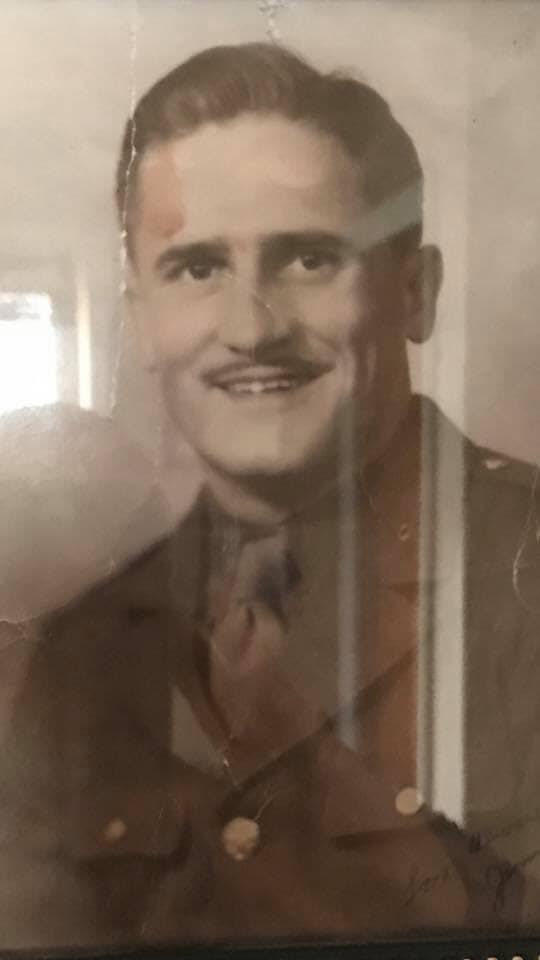
The fiercest part of the combat was from January 22 to February 6 of 1945 during what the Army’s official history described as “incessant fighting” conducted through “enemy-infested marshes and woods, in heavy snowstorms, and over a flat terrain crisscrossed by a number of small canals, irrigation ditches, and unfordable streams, terrain ideally suited for defense.” The topography was made even more challenging for advancing Americans by the weather, which was detailed by a French General as “uncommonly cold” for the region. The term “Siberian” was used for comparison. Three feet of snow fell during the engagement, temperatures dropped to -4 Fahrenheit, and strong winds scoured the battleground and piled up problematic drifts.
The initial objective of the assault was to reach the 111 River and lay down a bridge to enable armored units to cross and support the 30th Infantry. The portable bridge collapsed as a German Panzer brigade attacked, though, and the 3rd Infantry elements were forced back into fighting house to house and street by street, decidedly outnumbered and outgunned. The snow was knee deep and thick with mines as waves of German armor and infantry kept coming at the Americans, but they ultimately managed to hold the bridgehead. In a week of fighting and dying and living in the cold, the 3rd crossed the Colmar Canal in rubber boats and moved to capture six towns from the enemy in just eight hours. After enduring 500 casualties, the German garrison was cut off at Colmar, which assured the fall of the city.
The 3rd then moved south toward the Rhine and Rhine Canal and took two strategic bridges to complete what was frequently called “one of the hardest fought and bloodiest battles of the war,” probably because Hitler viewed that region of France as historically sovereign territory of Germany; a loss would also signify the end of German occupation of the country. By the time the Alsatian Plain had been completely secured, the 3rd Infantry Division was credited with annihilating three enemy divisions, including the feared 2d Mountain Divisions and the 708th Volksgrenadiers Division, badly mauling the 186th and 16th Volksgrenadiers Divisions, capturing 4,000 prisoners, ending German occupation of twenty-two towns, and inflicting more than 7000 casualties on the enemy. The final report stated that the 3rd also killed a disproportionate number of the enemy compared to the total it took as prisoners of war.
Although he never offered details, whatever my father’s involvement in that battle, it was a contribution to protecting American and global freedoms from authoritarian tyranny. The irony was, however, just one generation removed from my father’s service, his son was being treated as a political enemy of the state by the government my dad had fought to preserve. My apparently dubious character was revealed in 1994 when I was a panelist on a televised gubernatorial debate between the late Texas Governor Ann W. Richards and George W. Bush. Having come of age during the Vietnam era, I was aware of various efforts to avoid the draft and knew that getting into the National Guard involved waiting lists of years. During the debate, I asked Bush how he managed to be one of the fortunate sons who jumped a line of 100,000 young men hoping to join the Guard and avoid combat in Southeast Asia.
His answer was evasive, and, ultimately proved to be a lie, but it had set me off on a ten-year effort filing Freedom of Information requests on his service record. In the fall of 2004, just before he launched his presidential reelection effort, I published my second book about Bush, which created the controversy surrounding the missing records from his time in the Guard, and brought the president to some political grief. After he had won a second term, I signed another book contract and went to the airport in January of 2005 to travel and conduct research. I was told I could not curb check my bag and needed to check in with a gate agent.
“There is a problem with your background,” she said. “I can’t give you a ticket just yet.”
“What does that mean? A problem with my background?”
“I’m not sure. I am directed to call Homeland Security in Washington and have you speak with them, and not me.”
She quickly dialed and handed me a land line across the counter. The female voice on the other end asked me to confirm my identity, which I did with my passport number.
“I’m afraid you’ve been placed on the No Fly Watch List, sir.”
“I don’t understand what that means.”
“Apparently the government sees something in your background that is similar to someone they are looking for on the terrorists list.”
“Oh, come on. That’s absurd. I need a better explanation than that.”
“I’m afraid that’s all I can say, sir. The algorithms matched you against other backgrounds that fit profiles the government is watching.”
“Hilarious. I must have the most mundane name in the English language, and I am being monitored as a potential terrorist?”
“You can still fly, sir, but you won’t be able to use curb check, kiosks, or online check-ins, and you’ll have to undergo a hand check at security.”
“So, they are looking for someone who gets teary-eyed at the national anthem, has never been late on his taxes, has no criminal record, and was born and raised on American soil? Hope they catch that guy.”
The timing was suspect just a few months after Bush had been reelected in a campaign managed by his vindictive political consultant Karl Rove, who had been the subject of my first book. I felt confident this was retribution for the National Guard story but there was no proof. Lawyers I consulted said suing the government was hopeless because the documents needed to find fact during the discovery process were protected by the courts under the pretense of national security. Rove, though, could have had me placed on the list with a single phone call.
The loss of my travel convenience is hardly a major issue but there is something more than troubling about being politically punished by my government one generation after my father and Bradford Freeman had put their lives at risk to stop an authoritarian who began his dominance with similar tactics. We are living now through a cascade of rights erosion. Women have lost reproductive choices and are even being threatened with criminal prosecutions for having life-saving abortions. Employers face indictments and fines in many cases for subsidizing out of state trips for employee abortion procedures.
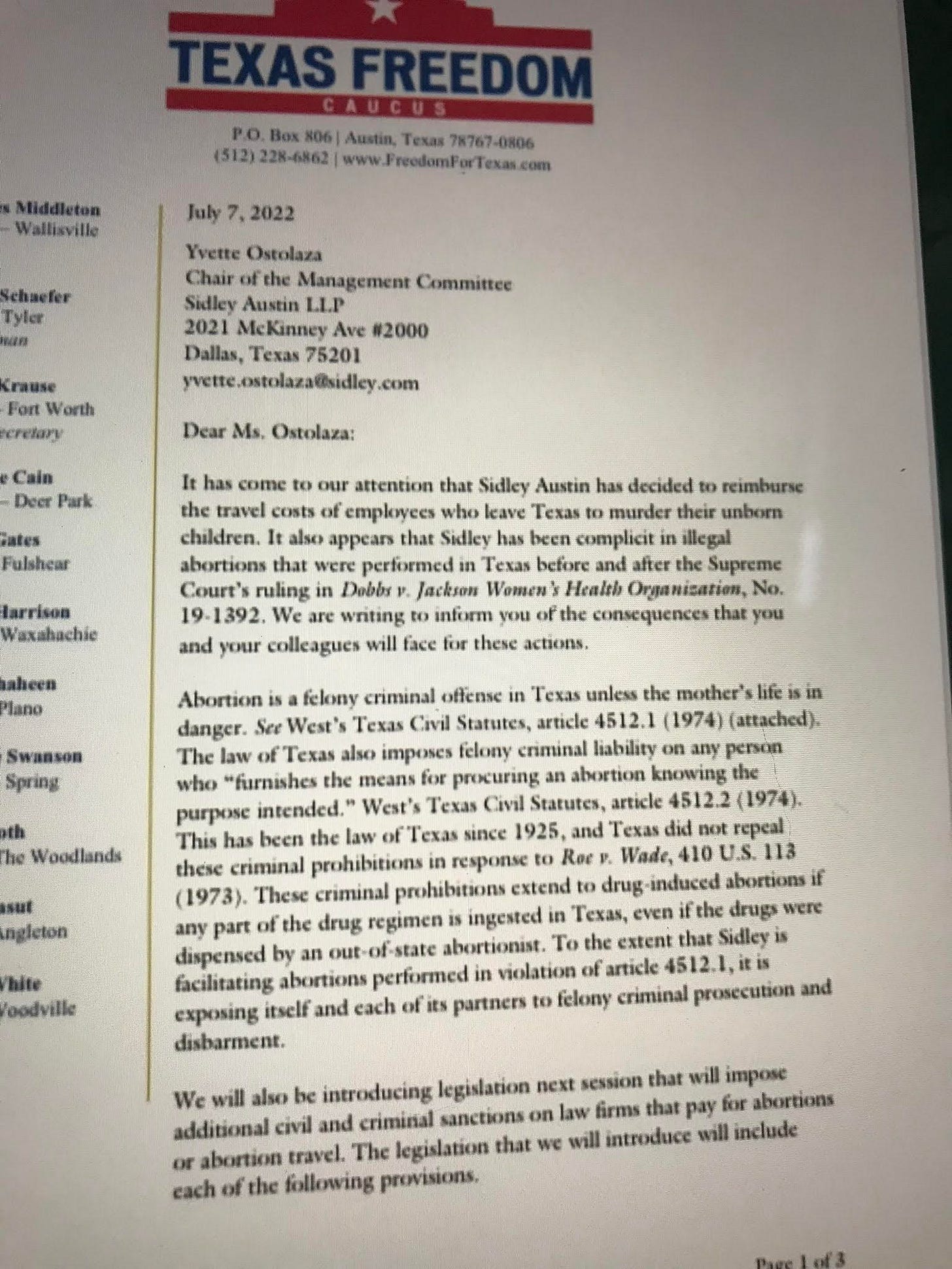
Books that conservatives disagree with are being banned from school and public libraries and teaching the history of racial oppression is being outlawed in various states and political jurisdictions. U.S. Supreme Court rulings have allowed our electoral system to be dominated by corporate money while also facilitating the proliferation of automatic weapons that increase the frequency of mass murders. A recent decision has taken away regulatory authority from the EPA and climate change will soon worsen in this country and abroad as a consequence. Human rights are being systematically violated as state actors and conservative interests militarize the U.S.-Mexican border.
Voting rights are being attacked and regulations introduced to diminish participation and increase the power and odds of minority rule. A president who conspired to overthrow the government and toss out a duly elected successor continues to walk free and enjoys the support of tens of millions of his fellow Republicans. A Republican congressman on the January 6th Committee investigating the insurrection reveals recorded messages threatening his life and his family by callers indicating they know where he lives.
What would those two Mississippi boys, who put their lives on the line, think of what we’ve done with the America they defended from anarchy?
It’s hard to know or understand what our fellow citizens want any more. Is it a benevolent dictator? Are we willing to surrender rights if an authoritarian keeps us employed and makes it possible to carry out our commodious daily activities without having to worry about politics? The security of being able to make mortgage and car payments surely is not enough to induce us to pass off our obligations to be involved and vigilant to preserve our democracy.
My belief is that we want leaders who are unafraid of the hard right ideology that is ruining America. We seek people who will call out the insidious designers of our doom and who empowered fools like the recent president. We want candidates who will demand easier access to voting, a higher minimum wage, a return of women’s reproductive rights, affordable and accessible health care, a ban on automatic weapons, an end to crushing student debt, regulations to clean our air and water, prohibitions on corporations buying politicians, a tax code that requires the wealthy and businesses to pay a fair share, immigration policies that are humane and fair, and a high court that respects existing law and doesn’t try to supersede the authority of congress.
I believe that is the America Privates First Class Freeman and Moore were fighting for. And we should too.